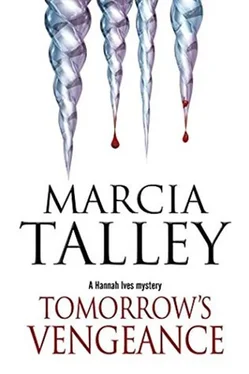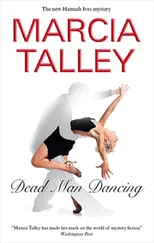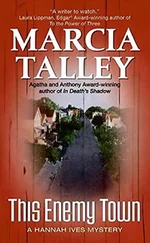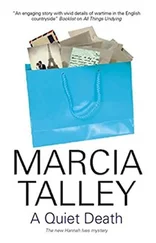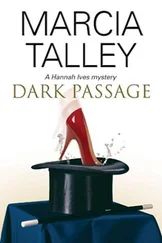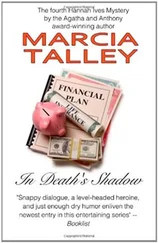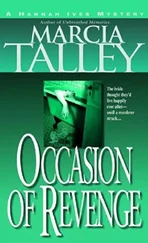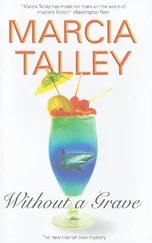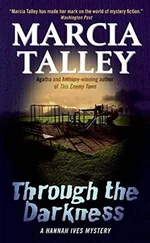Joseph Goebbels, The Goebbels Diaries ,
December 13, 1942.
‘In the years before the war, my family and I lived comfortably in Rome, in Trastavere,’ Izzy began, stirring a generous portion of cream into her coffee.
‘Trastavere! I know it. The old Jewish quarter, right?’
When Izzy nodded, I told her, ‘Paul and I vacationed in Rome a couple of years ago and we stayed in Borgo, near the Vatican. Several evenings we strolled along the Tiber to Trastavere for dinner. There are some wonderful restaurants there. I remember, oh, what was it? This marvelous fried artichoke dish; it looked like an exploded sunflower.’ I demonstrated with my hands.
‘ Carciofi alla giudia ,’ Izzy supplied. ‘Artichoke in the Jewish style.’
‘Yes, that’s it. Crisp, nutty. Totally delicious.’
Naddie passed me the sugar. ‘We should put it on Raniero’s list.’
‘Absolutely.’ I sipped my coffee. ‘What did your father do, Izzy?’
‘He owned a small art gallery which was popular with local artists, but he made most of his money restoring paintings for larger galleries like the Vatican Museum.’
I set my cup down. ‘Wow.’
Izzy smiled sadly. ‘I was too young then to be impressed. Abba worked primarily in the Pinacoteca , specializing in fifteenth-century restorations. When he began, the museum had been open only a few years, and many of the works had been in storage since 1815 when they were returned from Paris, so there was much work to do.’
Paris? Then the penny dropped. ‘Napoleon took off with them, I suppose.’
Izzy nodded. ‘Years later, when Bruno and I visited the galleries, I found myself looking closely at the paintings. This Fra Angelico, that Raphael, a glorious Bellini… searching for any small detail that could be by my father’s hand. The halo of a saint, a Pope’s ring, a cherub’s toe.’
‘Bruno was your husband?’
She nodded. ‘But Bruno’s part of the story comes much later.’
Filomena materialized at my right elbow, creeping up on us so quietly that I was startled. ‘Biscotti? We make them here.’
‘Yes, thank you, Filomena,’ Naddie said as the catering manager set a silver tray carrying an artistically stacked pyramid of biscotti down on the table in front of us.
‘In Argentina, we call these cookies cantuccini ,’ Filomena said.
I loomed hungrily over the tray, as if I hadn’t just eaten a monster crab salad and a crème brulee. ‘That was very thoughtful,’ I said, selecting a chocolate-covered cantuccini dotted with almonds. ‘I hope we’re not keeping you?’
Filomena waved away our concerns. ‘No worries! Stay as long as you like.’ Then she disappeared as quickly as she had come.
Izzy selected a biscotti for herself, dunked it into her coffee and held it there. ‘After the war began, my father believed we were safe because he had joined the Fascist Party, and was even active at their meetings.’ She bit into the soggy biscotti, chewed, then continued. ‘In those days everybody in Italy was a Fascist, at least on paper.
‘Until the Manifesto della razza in 1938, that is. That was when Mussolini’s Fascist government forbid Jewish children from attending schools. Mother taught my little brother and me at home, but in the forties the persecutions got worse. My father was forced to sell his business to Aryans at fire-sale prices, and we lost the gallery that had been in our family for three generations.’
The unfairness of it, the cruelty, stung me. ‘How awful,’ I said. ‘I heard about the persecutions in Nazi Germany, of course, but Italy?’
‘The racial laws took everyone by surprise,’ Izzy continued. ‘The Jewish community of Rome goes back to the second century BC when the Roman Empire had an alliance of sorts with Judea under the leadership of Judah Maccabeus.’ She shrugged. ‘I think the government wanted to prevent people like my father, who had quite a bit of money, from transferring it out of the country. Father continued working for a while – his work at the Vatican offered him some protection – but when the Germans occupied my country in 1943, they came looking for us.’
I’d forgotten my biscotti; my coffee had grown cold. ‘Good Lord.’
‘My mother spoke five different languages, Hannah. The Nazis said they wanted to employ her as a translator but that was a lie. Instead, they sent my parents to Risiera de San Sabba, a rice mill on the outskirts of Trieste, but it was really a concentration camp. From there, they were taken to Auschwitz.’
I swallowed hard and put down the biscotti I’d been nibbling, no longer particularly hungry for it.
Naddie reached out covered Izzy’s hand with her own. ‘I’m so sorry.’
‘That was before the Nazis installed a crematorium at Risiera to save themselves the trouble of shipping undesirables out of the country,’ Izzy said bitterly. ‘I never saw my parents again. The Nazis took everything from us. Everything.’
I dabbed at my eyes with my napkin, trying to take in the enormity of it all. Like millions before me, I’d had a teary, gut-wrenching visit to the Holocaust Museum in Washington, D.C., but I’d never known anyone who had personally experienced the Holocaust. Those who had survived, like Izzy, were now in their eighties and nineties, and I hoped that testimonies like hers were being recorded before it was too late.
‘How did you and your brother escape the Nazis when they came for your parents?’ I asked after a few moments of respectful silence.
‘When rumors reached Rome that the Germans were coming, my parents sent Umberto and me to live with family friends in the country, the DeLucas, but even there we were not safe. One day, the German soldiers came looking, but the word had gotten around, so the DeLucas hid us under the floorboards under a bed.’
‘Someone had turned you in?’ Naddie asked.
‘Exactly. In those days, it was dangerous to put your trust in anybody. After the soldiers went away, the DeLucas quickly arranged shelter for us in a convent just outside of Rome. My father’s connections with the Vatican made that possible. If it weren’t for that…’ She shrugged.
‘I wore the habit of a novice,’ she continued. ‘The Nazis were watching the convent, I know, and soldiers knocked on the gates from time to time, but even the Nazis wouldn’t mess with the Reverend Mother Francesca Louise!’ She managed a smile. ‘Oh, she could be a terror!’
‘What was it like, living in the convent?’ Naddie asked.
‘What I remember most is being hungry. The nuns shared what food they had with us, but we were always hungry. And the flour had weevils in it.’
‘Ugh,’ I said.
Izzy’s mouth twitched. ‘Extra protein, Reverend Mother used to say.’
‘And your brother? What happened to Umberto?’ I asked.
‘He got typhus,’ she said simply. ‘He died.’
‘I’m so sorry,’ I said, feeling lower than a snake for even bringing it up.
Izzy shrugged. ‘When the fever came, the nuns did everything they could for Umberto but there was no food, no medicine. I blame that on the Nazis, too.
‘Anyway, you can imagine how happy everyone was when the American soldiers came and Rome was liberated!’ She leaned forward over her coffee cup. ‘I stayed at the convent, though, because I had no place else to go.’
Filomena had sent a server out from the kitchen with a carafe of fresh coffee. I was already on a caffeine high but asked the young woman for a refill anyway.
‘This is where Bruno Milanesi comes into the story,’ Izzy said after the server had returned to the kitchen. ‘Bruno, he was a corporal with the U.S. 5th Army. The army had taken over a scuola secondaria that was near the convent and, even though the war was over, food was still scarce. My Bruno – only he wasn’t my Bruno then, of course – comes over with fresh eggs. He says in broken Italian – he didn’t speak good Italian at all, being an American boy – that he works in the kitchen, and would we like some eggs?’ Izzy rolled her eyes. ‘Oh, those were the most delicious eggs I had ever tasted! Bruno brought us eggs and cheese and sometimes apples. Later, when I got to know him better, I found out he was trading the cigarettes in his rations for food. He’d bring us the used coffee grounds, too. So wasteful, the U.S. Army. The nuns could always squeeze some more coffee out of those grounds! “Practically fresh,” Reverend Mother used to say.
Читать дальше
